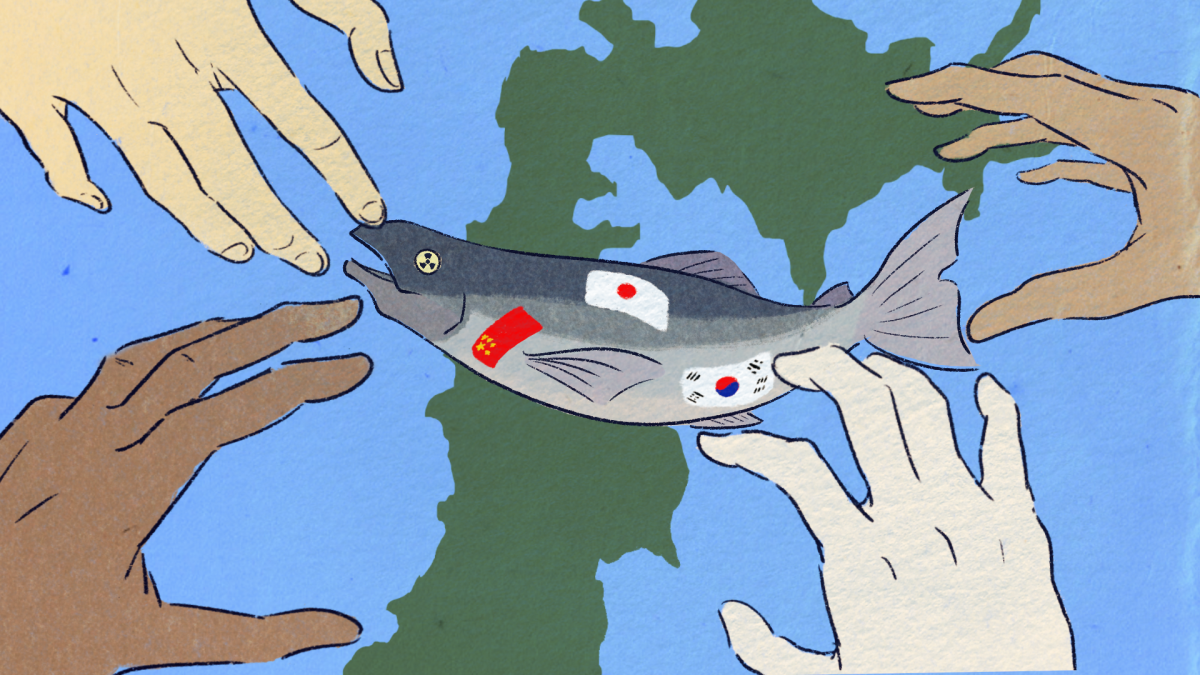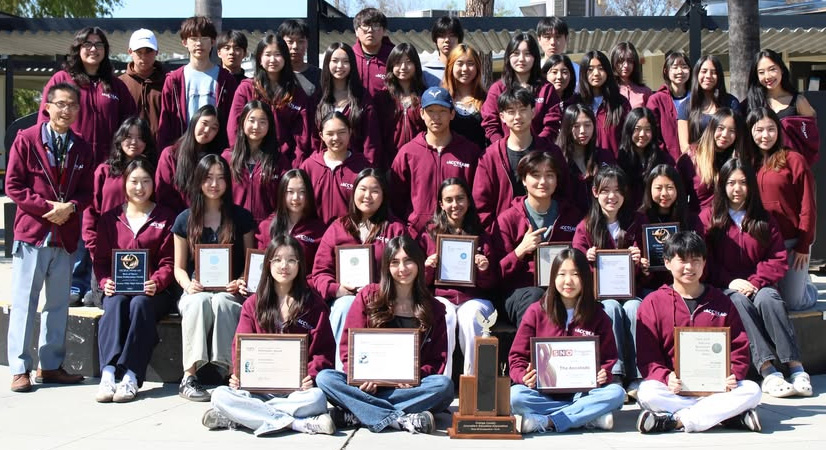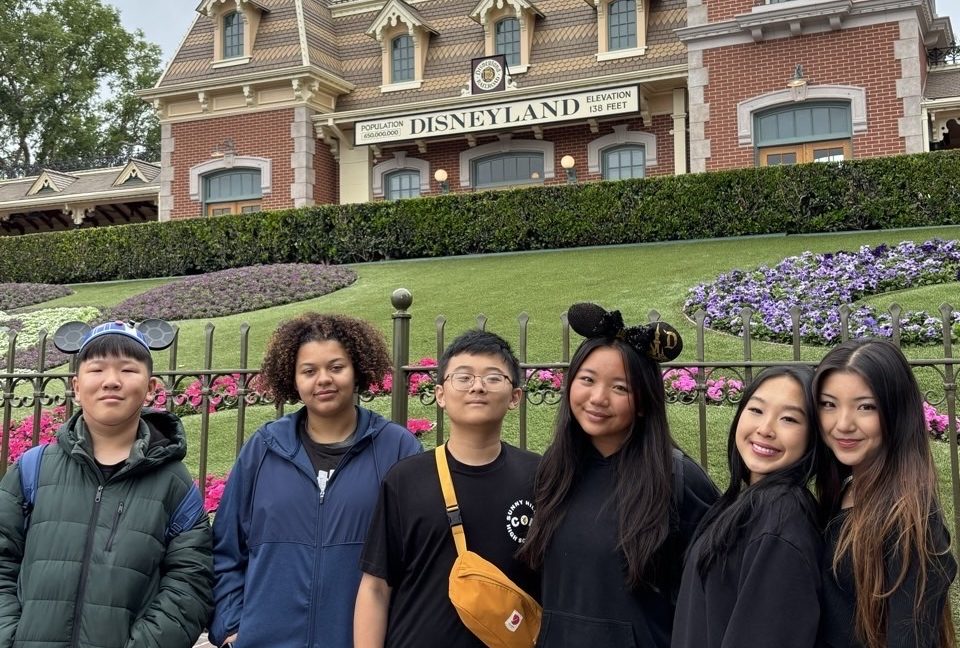Waving picket signs and banners marked with the words, “Don’t nuke the Pacific,” for the past few months, protesters have gathered by the streets of Japan to rally against the country’s daring plans.
After nearly two years of review, Japan’s initiative to release 1.3 million tons of treated radioactive wastewater into the Pacific Ocean is set to begin as early as Thursday, Aug. 24, and the panic won’t die down.
While the International Atomic Energy Agency’s [IAEA] 140-page-long report — made public on July 4, 2023 — makes it overwhelmingly clear that the Tokyo Electric Power Company’s [TEPCO] treated wastewater meets all the standards established by the United Nations, at its core, this project is unsustainable for the strength of the Japanese government and the faith of its constituents.
For context, the Great East Japan Earthquake of March 2011 caused a devastating tsunami that damaged the Fukushima Daiichi Nuclear Power Station [FDNPS] and its reactors, resulting in radioactive leakage into the atmosphere and the Pacific Ocean. While the problem had been “successfully” contained for the past decade, with over 1,000 tanks at FDNPS, TEPCO faced its next set of challenges two years back when it ran out of physical space to store the wastewater.
Despite the IAEA’s claims that “the discharge of the ALPS treated water, as currently planned by TEPCO, will have a negligible radiological impact on people and the environment,” according to Insider.com, domestic fishermen, as well as members of neighboring countries, China and South Korea, have expressed their opposition and growing anxiety.
But this is no silly case of fear-mongering driven by ill-informed people.
The great majority of the general public aren’t experts on nuclear energy and by no means are qualified to determine the credibility of the IAEA’s assessments. But the Japanese government’s lack of transparency warrants this mass panic.
“Now fish from Fukushima is popular again. People know we check every fish for radiation, so they feel safe. But now the government wants to release this contaminated water into the sea. We do not trust them, and we do not feel safe,” a Fukushima fisherman said in a Wednesday, July 5, BBC video interview.
For elderly communities who don’t have access to the 140-page report, let alone basic information on nuclear power plants, this is a life-changing decision that could produce incredible economic consequences.
According to 360info, the Japanese government has vowed to spend $260 million to support local businesses affected by the upcoming project. However, studies reveal that even with efforts to tackle decreasing seafood exports, the country would face a nearly $272 million reduction in its overseas seafood market.
As one of Japan’s largest seafood export destinations, Chinese officials plan to enforce stringent radiation tests and screening procedures on Fukushima imports in addition to bans on nearly a fifth of Japan’s prefectures.
“Chinese customs will continue to strengthen the detection and monitoring of radioactive substances, ensure the safety of Japanese food exported to China and strictly prevent the import of risky products,” the Mainland China’s General Administration of Customs said in a Friday, July 7, article by the South China Morning Post.
In other words, the release of Fukushima’s wastewater will yield devastating effects on Japan’s economy and a net $532 million loss on the government’s part, along with diplomatic strains with neighboring countries, China and South Korea.
And before anything, the public’s faith in the next few initiatives relies on the government’s transparency.
“Public understanding is lacking because of distrust [of the] government and TEPCO,” said Takayuki Yanai, a local fisheries cooperative executive in a Monday, July 24, article by The Asahi Shimbun. “The sense of safety only comes from trust.”
Considering TEPCO’s history of shady business and misconduct, however, it’s no surprise that the Japanese people are not in favor of their country’s next step.
According to a March 2011 BBC article, “TEPCO eventually admitted to 200 occasions in which information had been falsified between 1977 and 2002.” Further reports of fabrication were revealed five years later.
With the addition of TEPCO’s inefficient handling of the 2011 earthquake that resulted in radioactive contamination in the ocean — which the company denied for several months — as well as high levels of radioactive cesium, tritium and strontium in groundwater as indicated in a July 2013 Reuters article, TEPCO and the IAEA’s credibility remain questionable.
If anything, it’s bold of the government to expect its people to trust the power company’s claims, let alone continue to consume seafood products from contaminated regions. And with zero assessments to confirm the long-term environmental and economic impacts of the Fukushima initiative — which will take place over the course of the next 30 years — the government cannot guarantee our safety.
With just a day left until the start of this project, climate activists and protesters can now do virtually nothing to halt the release of Japan’s radioactive wastewater.
But if this truly is the better of all evils, we need to pressure Japanese officials into taking more initiative to restore the faith of the nation. This begins by investing in more research to evaluate the long-term effects of this plan and offering increased support to the communities affected most by Japan’s undertaking.
For the world leaders scrutinizing Japan’s mismanagement, consider this a pressing reminder that climate decisions should not be made without appropriate communication and an attempt to understand the sentiments of the people.















Jennifer Brown • Sep 13, 2023 at 3:21 pm
Super informational! Great article, I hope to read more of your writings
Kate Yang • Aug 27, 2023 at 9:51 pm
Great article, Irene. I miss you.